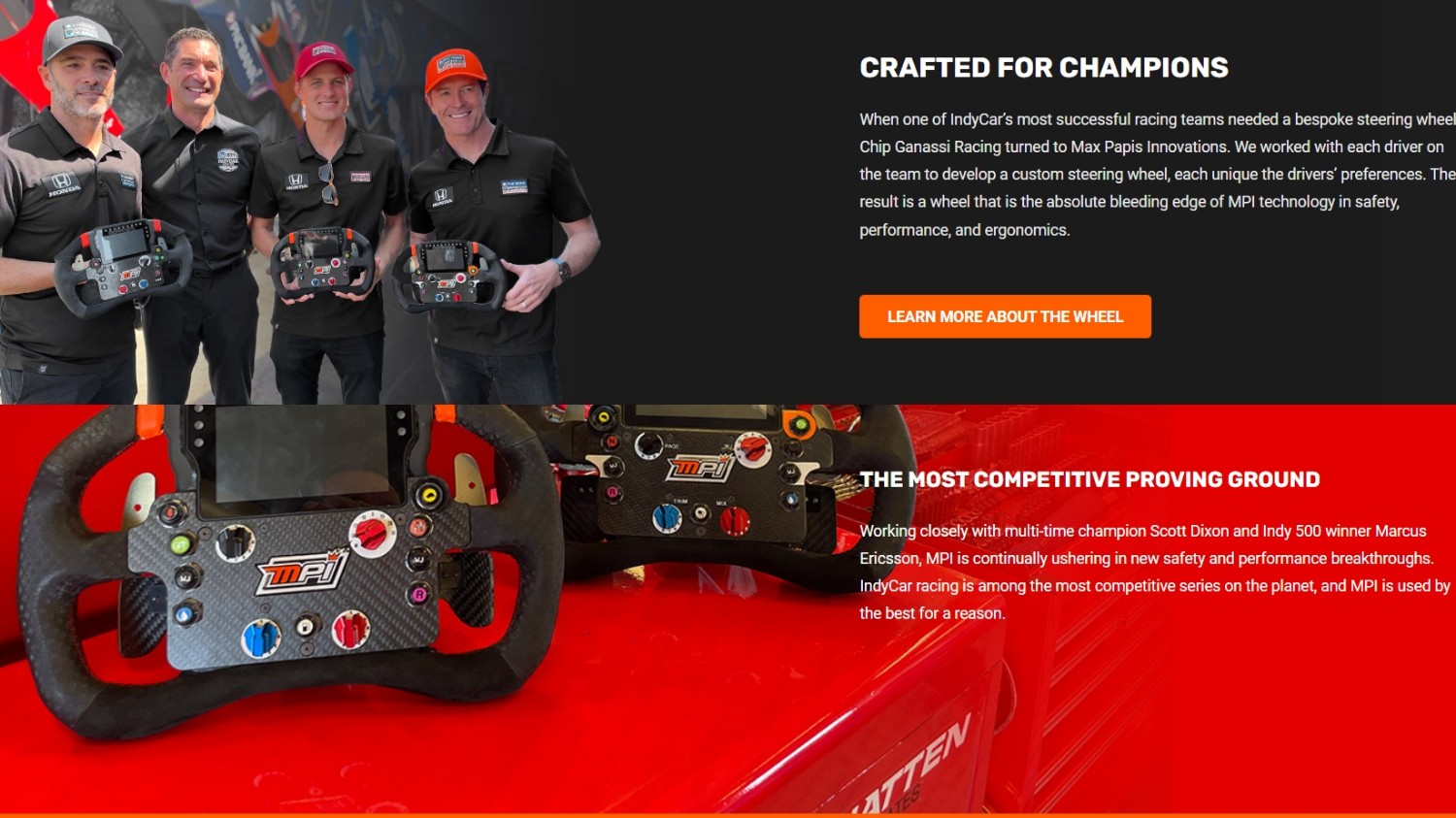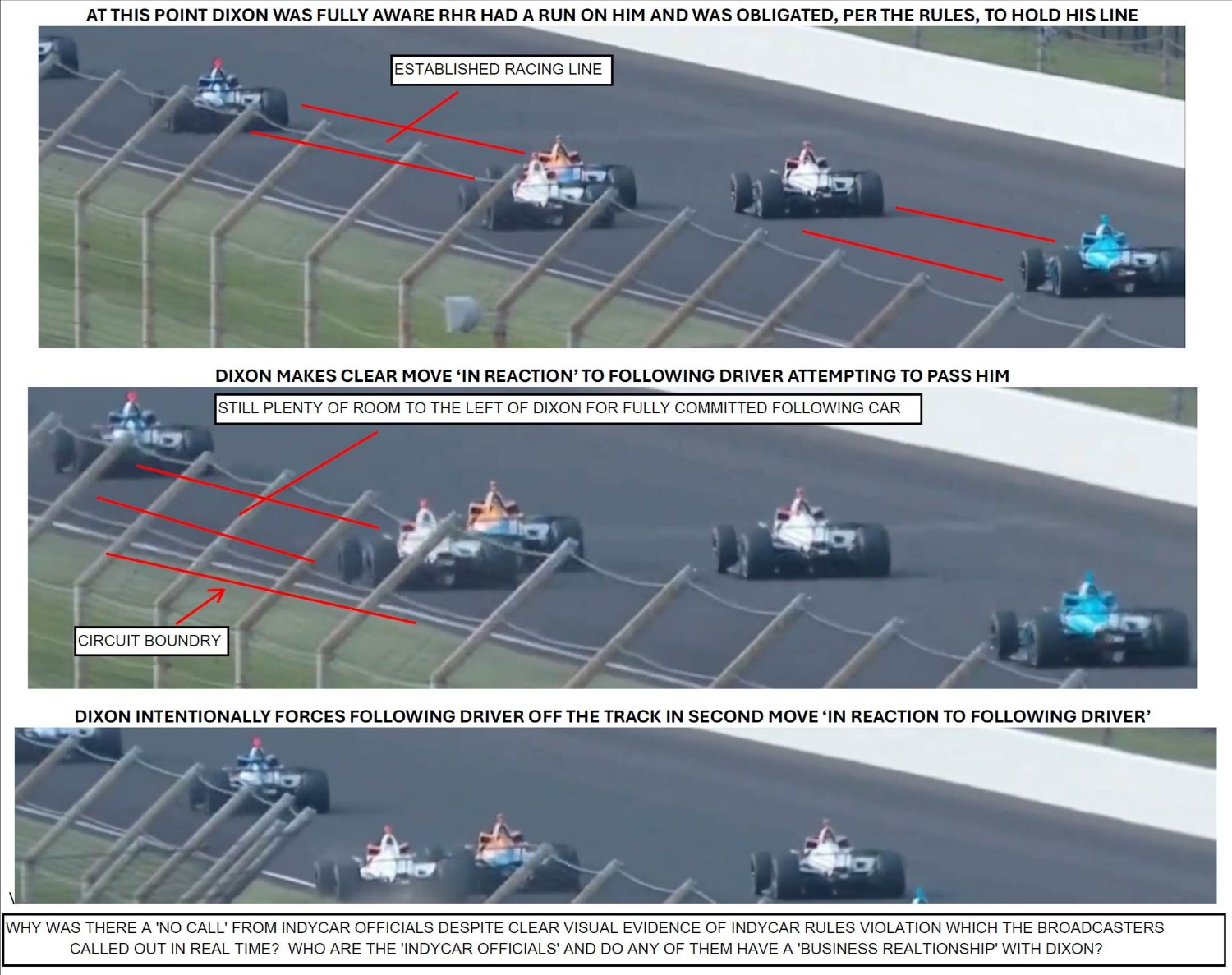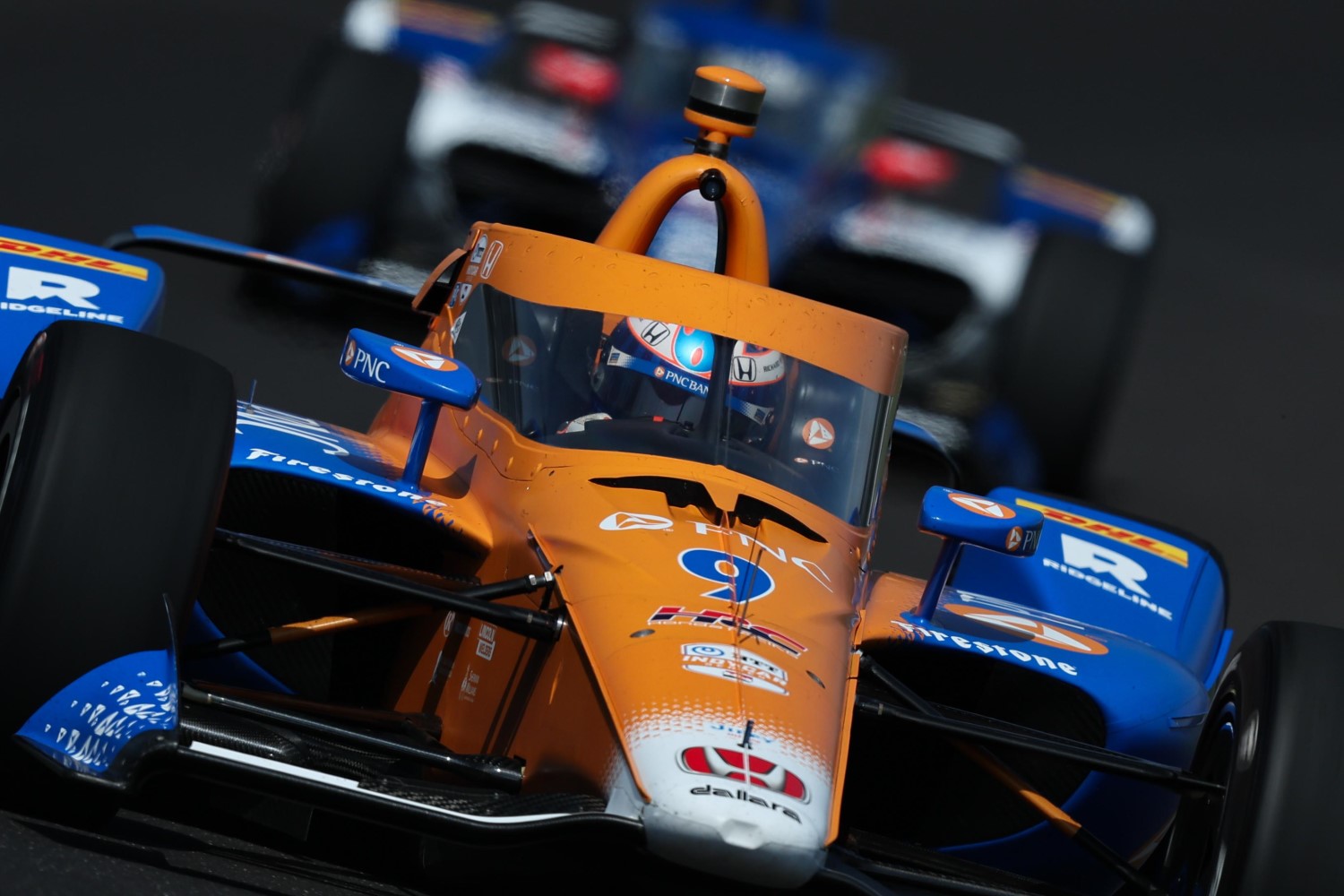IndyCar Rumor: Why Dixon was not penalized for taking RHR out (2nd Update)
This rumor is upgraded from ‘false’ to ‘speculation’ again.
Although Scott Dixon claimed to AutoRacing1.com in Detroit this past weekend that he had no direct business relationship with one of the IndyCar Race Stewards, it turns out his team, Chip Ganassi Racing does.
If nothing else, it would appear from the Max Papis Innovations website, that Chip Ganassi Racing buys Steering Wheels from Max Papis – one of two IndyCar Race Stewards.
As such, there is an apparent conflict of interest there, whereby a Race Steward could make preferential calls to Chip Ganassi Racing drivers.
We are not claiming that Papis shows favoritism to one of his customer teams, but we received emails from other members in the IndyCar paddock that say he does.
We are neither a judge nor here to say Papis is guilty of favoritism, we are just reporting what has been pointed out to us as a conflict of interest.

May 31, 2024
This rumor is downgraded from ‘speculation to ‘false’ today.
Scott Dixon told AutoRacing1.com this morning in Detroit that he has no business relationship with any of the IndyCar Race Stewards.
May 29, 2024
We have been getting a lot of emails questioning why Scott Dixon was not penalized for running Ryan Hunter-Reay (RHR) off the track on the back straight during Sunday’s Indy 500. It was a very dangerous move that could have had dire consequences.
–by Mark Cipolloni–
It was clear to everyone watching the incident replays that Dixon ran RHR off the track, and even the TV announcers felt there should have been a penalty for Dixon, but it never was imposed.
Ryan Hunter-Reay CRASHES trying to pass Scott Dixon!#Indy500 on NBC and Peacock pic.twitter.com/LxFHoQdxsW
— INDYCAR on NBC (@IndyCaronNBC) May 26, 2024
A graphical analysis of the incident:

So why wasn’t Dixon Penalized?
IndyCar is full of conflicts of interest. The most blatant is the fact that Roger Penske’s company, Ilmor, builds the Chevy engines, and his cars clearly had more pull coming off Turns 2 and 4 than any other Chevy during the 500. Penske also owns the Speedway, the Indy 500, the IndyCar Series, and he signs the paychecks of all the race officials.
The recent cheating scandal by Team Penske left a black mark on the series and raised the question, does Team Penske cheat in other ways?
There is no evidence, but it isn’t cheating until you get caught as they say. Has a race official turned a blind eye to other Penske Cheating because they know which side of their bread is buttered?
Hopefully not.
But the conflicts of interest don’t stop there. We were informed that one of the Indy 500 race Stewards has a business relationship with Scott Dixon and the Steward who does business with Dixon, refused to call for a review of whether there was an infraction when Dixon ran Hunter-Reay off the track.
The result – no penalty for Dixon
How Penalties are Determined
The INDYCAR race director and two race stewards, located in race control, monitor all NTT INDYCAR SERIES on-track sessions for potential violations of the INDYCAR rule book. Upon suspecting a violation has occurred, the race director or any of the stewards may call for a stewards’ review. The race director will announce that the incident is under review, with that information relayed immediately through race control communications systems to officials, teams and broadcast partners.
At that time, the two stewards will review all information available, including video replays, radio communications and time line data, to promptly reach a decision whether a rules violation was committed. A vote of the stewards determines if a rules violation did occur (voting results are not released) with the president of competition and operations or race director serving as the tiebreaker.
If a violation was determined to occur, the stewards will refer to the penalty guidelines to determine its severity. Available penalties for consideration include: a warning; pit lane drive-through; pit lane “stop and hold” for a determined amount of time; loss of position; taking a restart from the back of the field; loss of driver or entrant points; monetary fine; suspension or disqualification, and more.
Announcement of the infraction and penalty will be relayed through race control communications systems to officials, teams and broadcast partners. The race stewards will remain available following an event to explain decisions to competitors. The INDYCAR president has final say on all post-race penalties.
Conclusion
IndyCar needs to clean up these conflicts of interest if it wants to be taken seriously.
To remove these blatant conflicts of interest, Roger Penske should either 1) sell Team Penske, or 2) he should sell IndyCar, IMS and the Indy 500 to Liberty media and Ilmor to someone else.
And if a race steward has a business relationship with a driver in the race, then he should either recuse himself from deciding on any incident involving said driver, or he should not be a race steward.
